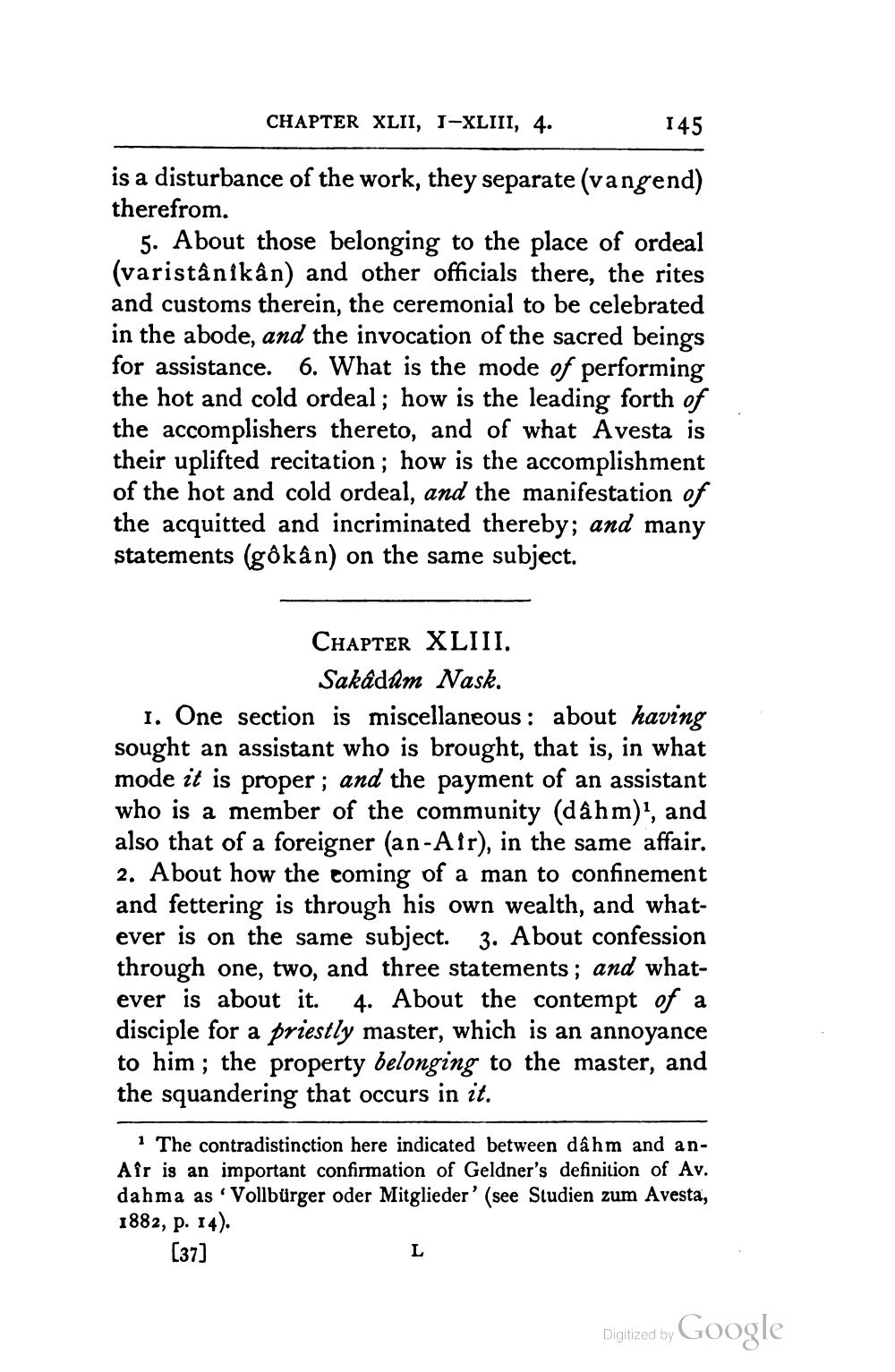________________
CHAPTER XLII, 1-XLIII, 4.
145
is a disturbance of the work, they separate (vangend) therefrom.
5. About those belonging to the place of ordeal (varistânikân) and other officials there, the rites and customs therein, the ceremonial to be celebrated in the abode, and the invocation of the sacred beings for assistance. 6. What is the mode of performing the hot and cold ordeal; how is the leading forth of the accomplishers thereto, and of what Avesta is their uplifted recitation ; how is the accomplishment of the hot and cold ordeal, and the manifestation of the acquitted and incriminated thereby; and many statements (gôkân) on the same subject.
CHAPTER XLIII.
Sakádam Nask. 1. One section is miscellaneous: about having sought an assistant who is brought, that is, in what mode it is proper; and the payment of an assistant who is a member of the community (dâhm)', and also that of a foreigner (an-Air), in the same affair. 2. About how the coming of a man to confinement and fettering is through his own wealth, and whatever is on the same subject. 3. About confession through one, two, and three statements; and whatever is about it. 4. About the contempt of a disciple for a priestly master, which is an annoyance to him ; the property belonging to the master, and the squandering that occurs in it.
1 The contra distinction here indicated between dâhm and anAir is an important confirmation of Geldner's definition of Av. dahma as 'Vollbürger oder Mitglieder' (see Studien zum Avesta, 1882, p. 14).
[37]
Digitized by Google




